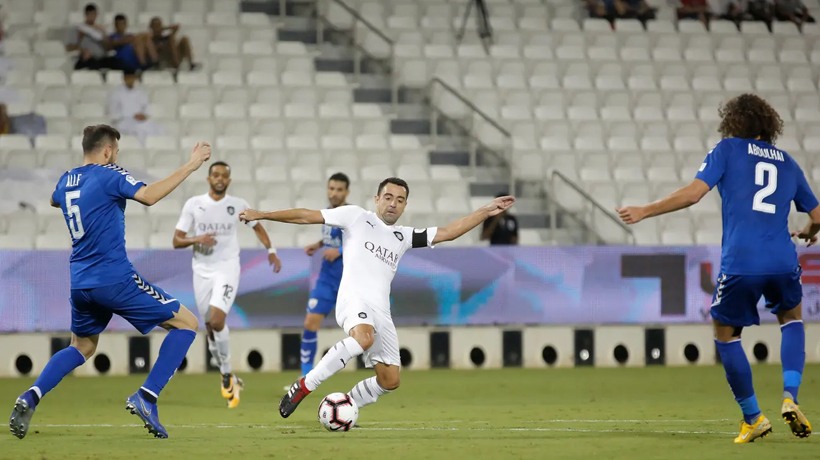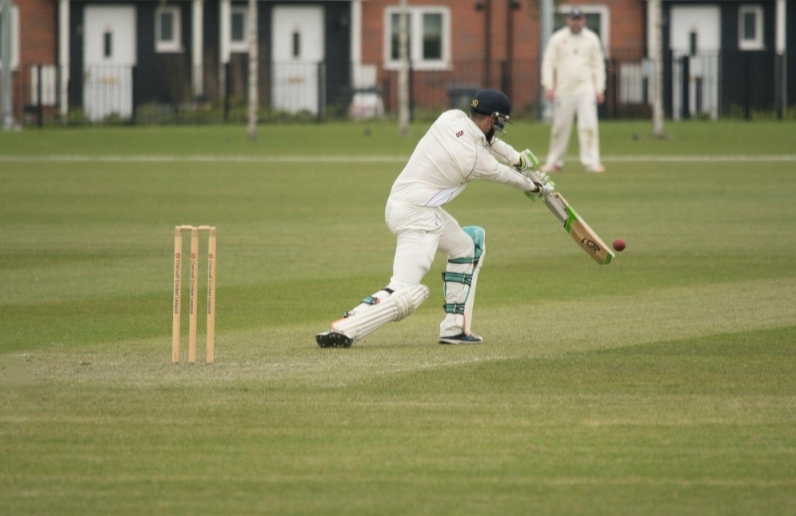Trending Now
- IPL 2024 begins with a bang. First contest between CSK and RCB.
- Election commission allots mike symbol to Naam Thamizhar Katchi
- AIADMK promises to urge for AIIMS in Coimbatore, in its election manifesto.
- Ponmudi becomes higher education minister.
Sports
‘It’s an honour to be here’: Xavi on a mission to give Qatar a team to be proud of
![]() November 22, 2018
November 22, 2018
he gulf between Qatar’s rank in the global football hierarchy and its vaulting, nation-building project to host the World Cup in 2022, is illustrated by the record of its national team. The “supreme committee” organising the World Cup makes the most of celebrating Qatar’s football history, which is a fascinating example of sports having been taken all around the world by British and European workers – here, in the oil and gas industries. Replicating a worldwide phenomenon, local people in the colonies or trading countries were introduced to sports, and clubs were formed on the European model.
It was only in 1970, the year of Brazil’s third World Cup triumph in the celebrated Mexico tournament lit up by Pelé, that Qatar even established a national team at all. That was a year before the country gained independence, under the rule of the al-Thani dynasty, from its status as a British protectorate. When its World Cup bid team, chaired by Sheikh Mohammed, the son of the then emir (ruler) Sheikh Hamad bin Khalifa al-Thani, claimed the famous Fifa vote in December 2010, Qatar became the first country since 1934 to host a World Cup without ever having qualified for one.
Now, along with the $8bn to $10bn being spent on building seven new stadiums and on reconfiguring the Khalifa International stadium, and the $200bn on transport and general infrastructure, the Qataris are dedicating resources to ensure their national team – ranked 96th in the world – will not be embarrassed in 2022. The former Barcelona and Spain midfield legend Xavi has been in Doha since his retirement from elite competition in 2015, playing for the Al Sadd club and helping to develop young players, roles for which he is paid a reported £7m annual salary.
Talking at the Al Sadd Stadium after his team’s 7-1 destruction of strugglers Al Kharaitiyat in the Qatar Stars League on 8 November, Xavi said it was “fantastic” to be an ambassador for Qatar. “My family and I are very happy here and I am very grateful for the country,” he said. “My daughter was born here and my wife is due to have another baby here. It is an honour to be here.”
Of the league and its playing standards, Xavi said: “Now it is improving a lot. When I came here three years ago, the league was different, the level was I think less, now it has improved a lot because the foreign players are better than before, the coaches are better, I think they are doing well. And it’s good for the Qatari players; they can learn many things from the foreign players.”
The partnerships with Barcelona have been deep and expensive; Qatar Foundation was the Catalan club’s first shirt sponsor, followed by a €171m deal with Qatar Airways from 2010 until last year. Pep Guardiola, like Xavi, finished his playing career in Qatar, and was recruited to be one of the World Cup’s bid ambassadors after the country launched it in March 2009.
Félix Sánchez Bas, the national team manager, is a former Barcelona youth coach who first moved to work in the Aspire academy system in Doha 12 years ago. Under his tutelage, the team are making significant strides: they beat Switzerland 1-0 in a friendly last week and drew 2-2 with Iceland on Monday. The latter match was played at the Kehrwegstadion of the Belgian club Eupen, one of three European clubs bought by the Aspire system as development grounds for young players.
The tiny Gulf emirate of only 300,000 citizens – and 1.7m migrant workers mostly from India, Nepal and Bangladesh – has inevitably struggled to field a competitive team from so small a youth population. Since embarking on its strategy of national projection after Sheikh Hamad usurped his father, Sheikh Khalifa, in 1995, the national football team have made fulsome use of Fifa’s qualification criteria, which makes players eligible if they have lived in a country for five years from the age of 18.
Of the starting XI who played Iceland on Monday, four players were born outside Qatar: the defenders Bonalem Rhoukhi (Algeria), and Ró-Ró (Portugal); the midfielder Karim Boudiaf (France), and the forward Almoez Ali (Sudan). The money, resources and determined strategy being channelled into development have greatly improved standards among the Qatar-born players too. The striker Akram Afif, 22, is considered the star and is back on loan at Al Sadd after graduating through the Aspire academy, playing for Eupen and then signing for Villareal in 2016.
Optimism on the team’s prospects for holding its own when they play the first World Cup match at the 80,000 capacity Lusail Iconic Stadium on 21 November, 2022, has been boosted by Qatar qualifying for next year’s Under-20 World Cup in Poland.
“The new generations are different from the old one,” Xavi told us. “Because I think the most important thing is Aspire. It started in 2006 and [so] the new generation are more professional. I think they are preparing well. They have a very good coach now in the national team, Félix Sánchez, I know him very well. Of course it is not easy to play against the big teams – Brazil, Spain – but at least I think they will compete well in 2022. Also they have time, they have four years to prepare well, but let’s see.”
Given the supreme committee’s pitch about Qatar’s passion for football and the presence of Xavi, still a supreme short- and long-passing master, in wonderful dotage at this local club, it was sobering to see a crowd of only 400 at the Al Sadd match. Notices at the stadium prescribed “modest” dress, the fans were all men, and the atmosphere was a lame affair of half-hearted songs orchestrated by organised drumming and cheerleaders.
Xavi said he does not mind playing in an empty ground because he still loves football but acknowledged the lack of spectators is a problem. Some Qataris, we were told, are more inclined to take a flight to watch Barcelona, Paris Saint-Germain or a Premier League match than support the average QSL match.
“It’s a pity,” Xavi said. “In the Emir cup, in the [Asian] Champions League, the stadium was full. It depends on the game. Today, OK, it is an easy game for us and people stay at home to watch the game [on TV]. Generally the crowds are not so big. We have to find some solution to excite the people to come for this kind of game. I don’t know how.”
He was clear he believes the World Cup, in the agreeable temperature of the desert winter, will be a success; the stadiums brilliantly designed, the organisation planned in fine detail and infinitely well-resourced.
“They are preparing well, they had many years to prepare, all the construction, the stadiums; people here are excited. Because it is in December, the players will be in better fitness, the [move to winter] I think is a very good solution, this weather is fantastic, 25, 30 degrees. I think it will be one of the best World Cups in history.”
























